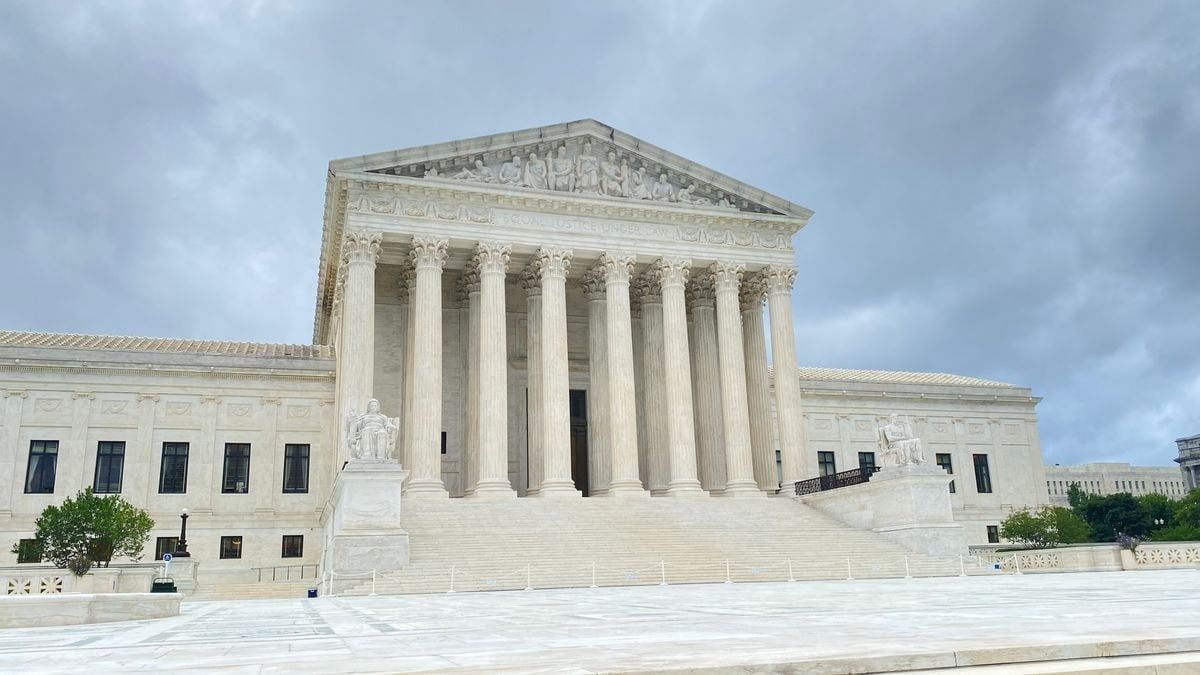Employee making $200K can earn overtime, SCOTUS holds

From a ground view, the Supreme Court of the United States is seen on Sept. 7, 2022. In a 6-3 decision authored by Justice Elena Kagan, the court held that Michael Hewitt did not meet the FLSA’s definition of an executive. Caroline Colvin/HR Dive
Dive Brief:
- A tool pusher for oil and gas company Helix Energy Solutions who made more than $200,000 a year but was paid on a daily basis is not exempt from the Fair Labor Standards Act’s overtime pay requirements, the U.S. Supreme Court ruled Wednesday (Helix Energy Solutions, Inc. v. Hewitt, No. 21–984 (U.S. Feb. 22, 2023)).
- In a 6-3 decision authored by Justice Elena Kagan, the Court held that Michael Hewitt did not meet the FLSA’s definition of an executive because workers like Hewitt who are paid on a daily rate basis, regardless of their income level, may only qualify for the exemption if they are paid on a salary basis.
- Helix’s pay structure for Hewitt did not meet FLSA’s salary-basis criteria, Kagan wrote. The high court’s ruling affirms the judgment of the 5th U.S. Circuit Court of Appeals.
Dive Insight:
The court’s decision may be an unexpected one for some observers in the employment law community, not least because the question the appellant, Helix, originally presented to the court differs from the question the court ultimately answered.
Under the FLSA, employers may exempt bona fide executive, administration and professional employees from the law’s overtime pay requirements if the following conditions laid out in Part 541 of the FLSA’s regulations are met:
- The employee earns total annual compensation of $107,432 or more, which includes at least $684 per week, paid on a salary or fee basis.
- The employee’s primary duty includes performing office or nonmanual work.
- The employee customarily and regularly performs at least one of the exempt duties or responsibilities of an exempt executive, administrative or professional employee.
Part 541.602 defines the term “salary basis” as an arrangement in which the employee earns a “predetermined amount constituting all or part of the employee’s compensation which amount is not subject to reduction because of variations in the quality or quantity of the work performed.” The employee must receive this amount each pay period on a weekly or less frequent basis.
In its ruling, the court held that Hewitt’s pay structure did not meet those requirements because he was paid on a daily basis, which falls outside of the “weekly or less frequent basis” requirement. During oral arguments last October, counsel for Helix posited that Hewitt did meet this requirement, because he was guaranteed $963 for any week in which he worked one minute. That’s above the FLSA’s $684 per week — or $455 per week for the time period at issue in Helix — threshold for exemption.
The majority of the court rejected this logic. “The dissent reasons that because Hewitt received more than $455 for a day’s work, he must have been paid on a salary basis,” Kagan wrote. “That is a non-sequitur to end all non-sequiturs.”
As Justice Neil Gorsuch noted in a dissenting opinion, however, Helix’s writ of certiorari did not ask the court to decide the question of whether Hewitt’s pay structure met 514.602’s requirements. It actually asked the court to decide a different question altogether: whether the requirements of Part 541.601, which outlines the exemption of certain highly compensated employees from the FLSA’s overtime requirements, is subject to Section 541.604(b), a different part of the regs.
“As the Court explains, the proper interaction between [541.601] and [541.604] matters only if Helix Energy paid Mr. Hewitt on a salary basis consistent with the terms of [541.602],” Gorsuch wrote. “Faced with this development, the Court chooses to take up the question whether Mr. Hewitt was paid on a salary basis under [541.602] and holds he was not.”
Gorsuch concluded that he would dismiss Helix as being “improvidently granted” by the court, but the majority was not persuaded.
“The Supreme Court decision is a boon for those highly-compensated employees who are paid on a day-rate basis,” Keith Wilkes, shareholder at Hall Estill, said in an email to HR Dive.
Wilkes added that employers that pay employees on a day-rate basis believing such employees were exempt from overtime pay “will need to move quickly to shore up their exposure,” while those with employees in the same scenario as Hewitt may need to decide among paying such employees overtime, adding a weekly guarantee to their day rate to meet the FLSA’s requirements, or converting them to a straight salary for the weeks they work.
This article, written by
Ryan Golden, appeared
first on
HR Dive.

